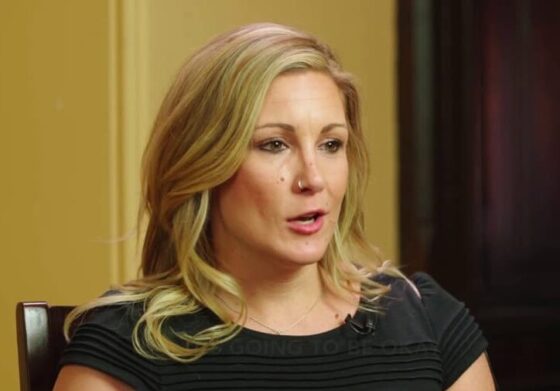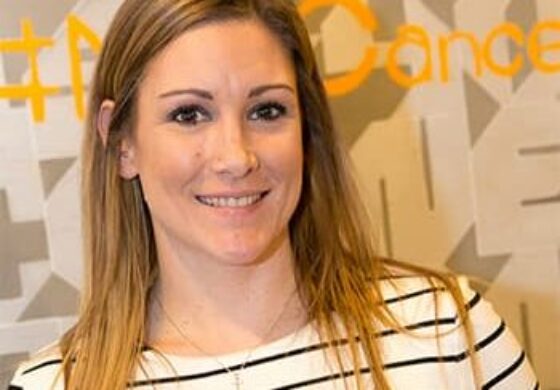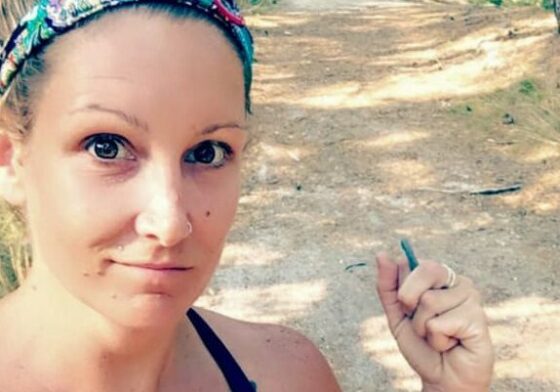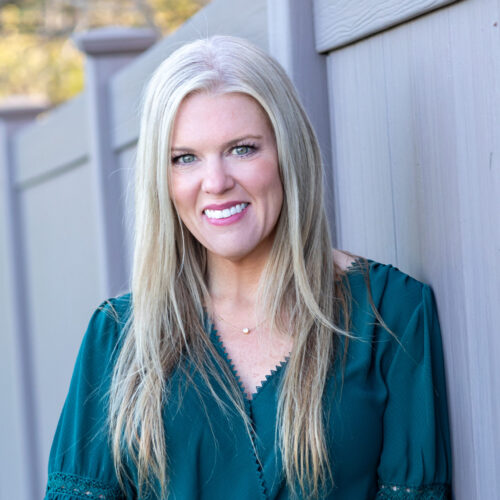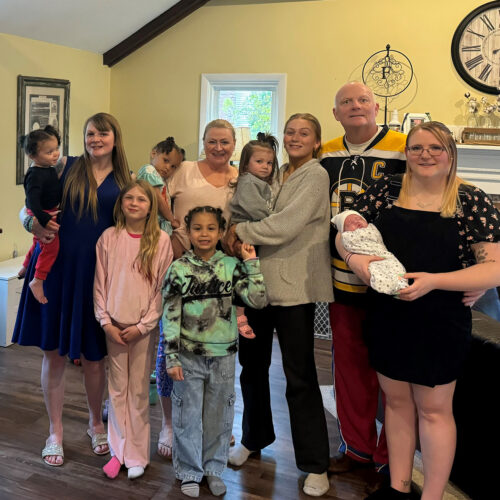I have always been an athlete, excelling mainly at soccer and running. I had the immune system of a superhero and sickness was a rarity for me.
I played soccer from when I could walk through college. While playing indoor soccer with friends, I was hit rather hard by a player on the opposing team in my right breast. I had a bruise instantly and I felt a lump.
My thoughts didn’t go any further than, “Wow, he really got me good,” but since I have been playing competitively for many years, this did not alarm me. What’s another bruise and a lump?
Throughout the months of being there for my family after my grandmother’s diagnosis of Stage IV metastatic lung cancer, I had forgotten about my mishap at soccer. Until one day, I happened to feel that lump again. This time it was bigger. I still wasn’t all that alarmed at this point, thinking that maybe I had some fluid in there from the hit months prior.
“I am 25,” I thought, and there was no way I had breast cancer at 25.
So on I went, living life. I finally made an appointment to see my primary care physician in mid March 2009. He agreed with me. I am too young for breast cancer, but he did feel that lump and he wanted to get it checked out through an ultrasound. I followed up with a surgical oncologist who said that it would be very odd for someone of my age to be diagnosed with breast cancer, but tumors that are cancerous usually have pointed edges and look “like a Christmas tree” and of course, my tumor looked like a Christmas tree. I had a fine needle biopsy right then and there.
I didn’t hear anything the next day and was relieved. I just knew it wasn’t anything bad. At 9:45 that night, I got a call from my doctor telling me that the cells were malignant and that I had to go in for an appointment to meet my “team” the next morning. My mind was racing, I didn’t even gather any of the information he was telling me. I walked out of the bathroom with the phone in my hand, gave it to my dad and said, “Yeah, so I have cancer.” I walked up to my room, and I cried for a while.
“Taking care of yourself is important, but also knowing your own body is equally as important and I think often overlooked.”
My cancer was hormone related, I had two lymph nodes involved and the tumor was growing at a fast rate. Apparently this is common in young people with cancer. I was given a pretty aggressive treatment plan because of my age, which included chemotherapy, removal of my right breast and radiation afterwards. Finally, all of my bloodwork, biopsies, and MRI results came back that I had a clean bill of health.
I then had my largest operation yet—a left mastectomy and then a lat flap reconstruction of both breasts. Basically what this entails is taking back tissue, muscle and skin from your back (latissimus) and making new breasts with that, then they put in what they call “tissue expanders” to expand the skin each week with saline. The procedure was long and after a grueling 8 hours, I was on my way to recovery with two surgical drains in each side. A few days later I was home and two weeks after that, I was stuffing my surgical drains in my pantyhose to go to my 10 year high school reunion. After another hospital stay in December due to a staph infection, I had the right tissue expander removed.
Symptoms
- no early symptoms; felt lump in breast after getting hit with a soccer ball
- pimple that would not go away (skin cancer)
Update
Following my breast cancer treatment, I started volunteering with DetecTogether. I was really looking for a means of doing something positive with my cancer diagnosis and am so grateful that I did, because it helped me find another cancer a couple of years later.
DetecTogether taught me the 2-Week Rule. A few years after I started working with them, I had a skin change that looked like a pimple. I didn’t really think much of it, but I knew after a couple of weeks that it wasn’t normal for me to have something linger that long. So I used the 2-Week Rule, and I went to my doctor. It ended up being a squamous cell carcinoma. Because I caught it early, the treatment was minimal—Mohs surgery, where they scrape the cancerous cells, and then a little plastic surgery.
3 Steps Detect can save your life. If something’s been bothering you for two weeks, go to your doctor. Don’t ignore your body.
